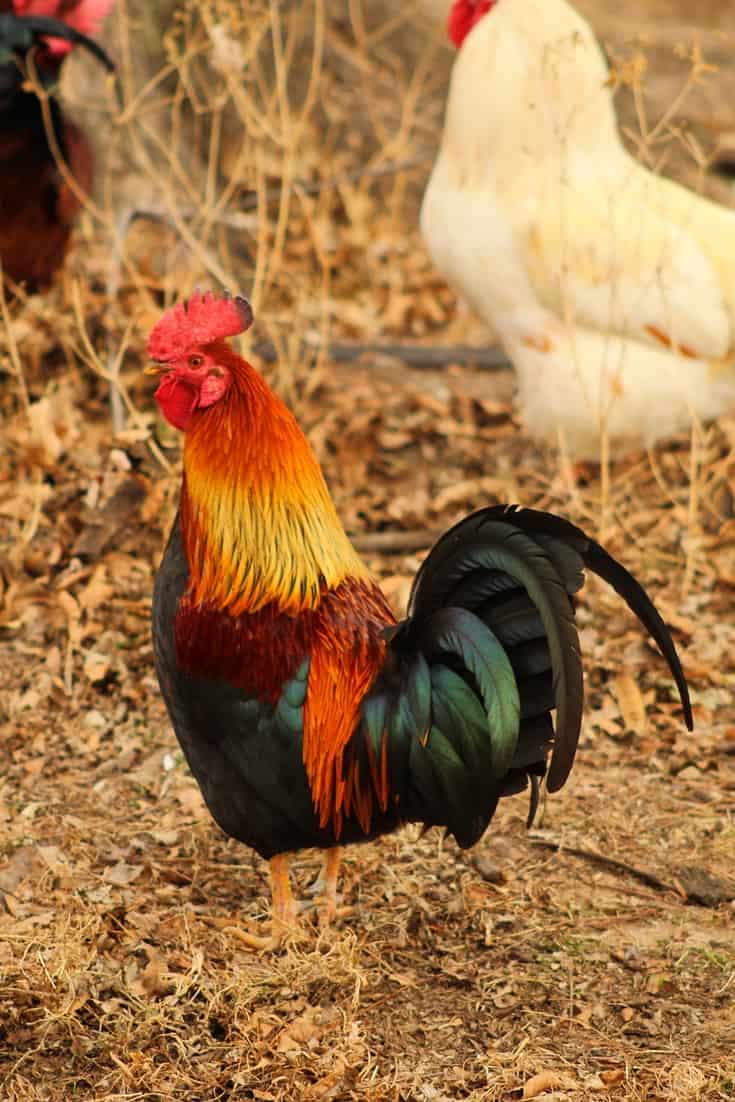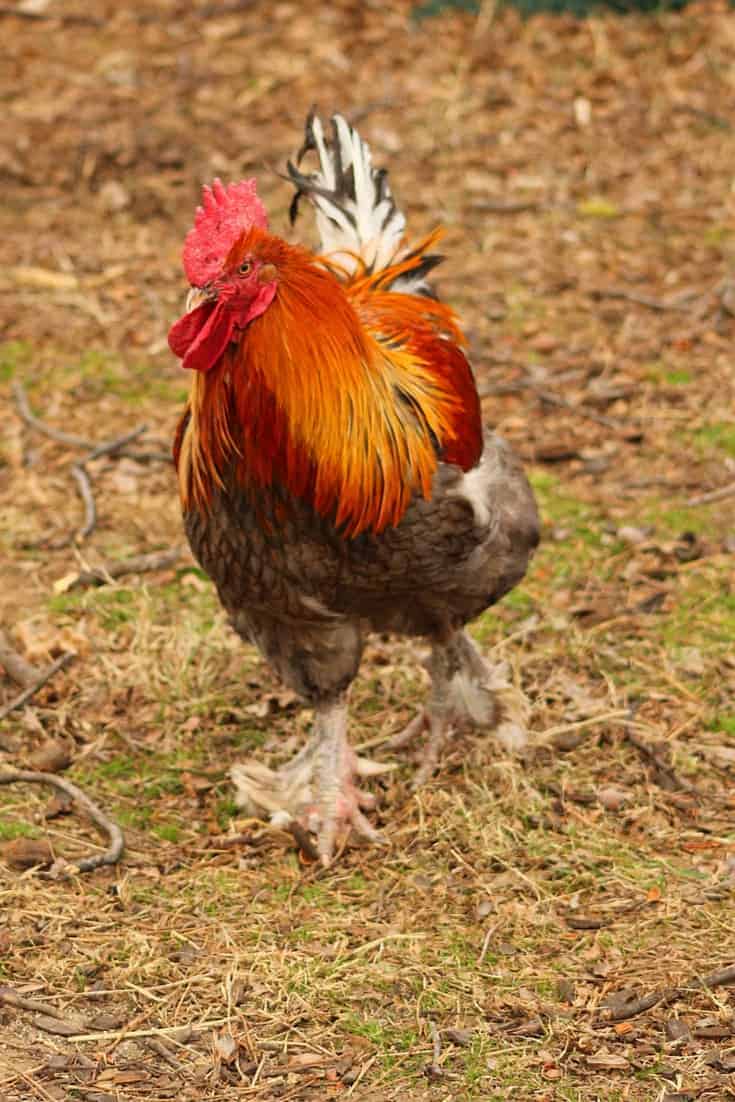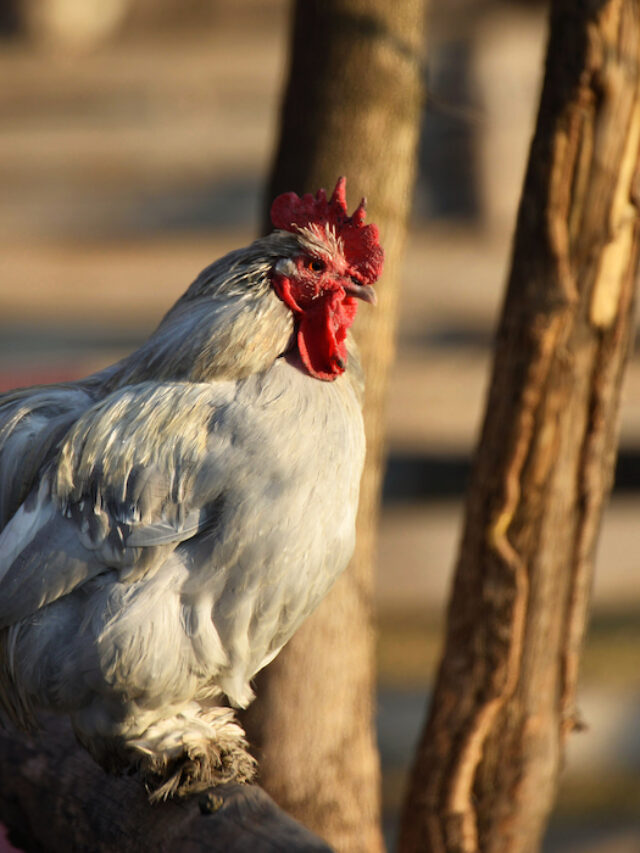Can Chickens Lay Eggs Without A Rooster? Everything You Need To Know
Chickens are fascinating creatures, and their ability to lay eggs is one of the most intriguing aspects of their biology. If you're wondering whether chickens can lay eggs without a rooster, you're not alone. Many people have questions about this topic, especially those who are new to raising chickens or interested in starting a backyard flock. In this article, we will dive deep into the science behind egg-laying and explore the role of roosters in the process.
Whether you're a seasoned poultry farmer or a curious backyard chicken enthusiast, understanding the egg-laying process is essential. Chickens can indeed lay eggs without a rooster, but there are nuances to this process that we will explain in detail. By the end of this article, you will have a comprehensive understanding of how chickens produce eggs and the factors that influence egg production.
Join us as we explore the biology of chickens, the role of roosters, and the practical implications of keeping chickens for egg production. Whether you're looking to maximize egg output or simply satisfy your curiosity, this article has everything you need to know about chickens and their egg-laying capabilities.
- How Old Is Floyd Mayweather A Comprehensive Guide To The Boxing Legends Life And Career
- Comprehensive Guide To Msg Seating Chart For Concerts
Table of Contents
- The Biology of Egg-Laying in Chickens
- The Role of the Rooster in Egg Production
- Fertile vs. Infertile Eggs: What's the Difference?
- Chicken Breeds and Egg Production
- Nutrition and Egg-Laying
- The Importance of Environment
- Health Considerations for Egg-Laying Chickens
- Common Questions About Chickens and Egg-Laying
- Practical Tips for Maximizing Egg Production
- Conclusion: Can Chickens Lay Eggs Without a Rooster?
The Biology of Egg-Laying in Chickens
Understanding the biology of egg-laying is crucial to answering the question, "Can chickens lay eggs without a rooster?" Chickens are oviparous animals, meaning they lay eggs as part of their reproductive process. The egg-laying cycle begins in the hen's ovary, where ova (egg cells) mature and are released into the oviduct.
As the ova travels through the oviduct, it is surrounded by albumen (egg white) and a protective shell. This entire process takes approximately 24 to 26 hours, and a healthy hen can lay an egg almost every day under optimal conditions. Importantly, this process does not require the presence of a rooster unless you want fertilized eggs for hatching.
How Often Do Chickens Lay Eggs?
The frequency of egg-laying depends on several factors, including the breed of chicken, age, diet, and environmental conditions. On average, a well-cared-for hen can lay between 250 to 300 eggs per year. However, this number can vary significantly depending on the individual bird and its living conditions.
- Who Plays On Sunday Night Football A Comprehensive Guide
- Charles Spencer 9th Earl Spencer A Comprehensive Insight Into The Life And Legacy
The Role of the Rooster in Egg Production
Many people mistakenly believe that a rooster is necessary for chickens to lay eggs. In reality, roosters play no role in the egg-laying process itself. Their primary function is to fertilize eggs, which is only necessary if you want to hatch chicks. Without a rooster, hens can still produce eggs, but they will be infertile and unable to develop into chicks.
Do You Need a Rooster for Eggs?
The short answer is no. Roosters are not required for egg production. If your goal is to have a steady supply of eggs for consumption, a rooster is unnecessary. However, if you plan to expand your flock through hatching, a rooster will be essential for fertilizing the eggs.
Fertile vs. Infertile Eggs: What's the Difference?
One of the most common questions about chickens and egg-laying is the difference between fertile and infertile eggs. Fertile eggs are produced when a rooster mates with a hen, and the sperm fertilizes the ova. These eggs have the potential to develop into chicks if incubated properly. Infertile eggs, on the other hand, are laid by hens without the presence of a rooster and cannot hatch.
From a consumer perspective, there is no nutritional difference between fertile and infertile eggs. Both types are safe to eat and provide the same health benefits. However, fertile eggs may have a small white spot called a blastodisc, which indicates the presence of genetic material. This spot is harmless and does not affect the quality of the egg.
How to Tell if an Egg is Fertile
- Examine the egg for a small white spot (blastodisc).
- Candle the egg using a bright light to check for signs of embryo development.
- Keep in mind that fertile eggs will only develop into chicks if incubated under the right conditions.
Chicken Breeds and Egg Production
Not all chicken breeds are created equal when it comes to egg-laying. Some breeds are known for their high egg production, while others are more focused on meat or dual-purpose qualities. If your goal is to maximize egg output, choosing the right breed is crucial.
Top Egg-Laying Breeds
- White Leghorn: Known for laying up to 300 eggs per year.
- Australorp: A popular breed that can lay around 250 eggs annually.
- Rhode Island Red: A hardy breed with excellent egg-laying capabilities.
- Plymouth Rock: Known for its dual-purpose qualities and reliable egg production.
Nutrition and Egg-Laying
Proper nutrition is one of the most important factors affecting egg production in chickens. Hens require a balanced diet rich in protein, calcium, and essential vitamins and minerals to maintain optimal health and lay high-quality eggs.
Key Nutrients for Egg-Laying Chickens
- Calcium: Essential for strong eggshells.
- Protein: Supports egg production and overall health.
- Vitamins A, D, and E: Important for reproductive health and egg quality.
- Water: Adequate hydration is critical for egg formation.
The Importance of Environment
In addition to nutrition, the environment plays a significant role in egg-laying. Hens thrive in clean, well-ventilated coops with adequate space and protection from predators. Lighting is another critical factor, as hens require about 14 to 16 hours of light per day to maintain consistent egg production.
Tips for Creating an Ideal Environment
- Provide a clean and comfortable nesting area.
- Ensure proper ventilation and temperature control.
- Offer sufficient lighting, especially during shorter daylight hours.
Health Considerations for Egg-Laying Chickens
Healthy hens are more likely to lay high-quality eggs consistently. Regular health checks and preventive care can help ensure that your flock remains productive and disease-free. Common health issues that affect egg-laying include parasitic infections, nutritional deficiencies, and stress.
Signs of Healthy Egg-Laying Hens
- Shiny feathers and bright eyes.
- Consistent egg production and quality.
- Active behavior and good appetite.
Common Questions About Chickens and Egg-Laying
Can Chickens Lay Eggs Without a Rooster?
Yes, chickens can lay eggs without a rooster. However, these eggs will be infertile and unable to hatch into chicks.
How Long Do Chickens Lay Eggs?
Chickens typically begin laying eggs at around 18 to 24 weeks of age. Their peak egg-laying period usually lasts for the first two to three years, after which production gradually declines.
What Happens if a Hen Stops Laying Eggs?
A hen may stop laying eggs due to factors such as age, stress, illness, or inadequate nutrition. Identifying and addressing the underlying cause can help restore egg production.
Practical Tips for Maximizing Egg Production
If you're looking to maximize egg production in your flock, here are some practical tips to consider:
- Choose high-producing breeds like White Leghorns or Australorps.
- Provide a balanced diet rich in calcium and protein.
- Ensure proper lighting and ventilation in the coop.
- Minimize stress by maintaining a clean and safe environment.
Conclusion: Can Chickens Lay Eggs Without a Rooster?
In conclusion, chickens can indeed lay eggs without a rooster. The presence of a rooster is only necessary if you want to produce fertile eggs for hatching. Understanding the biology of egg-laying, the role of nutrition, and the importance of a healthy environment can help you maximize egg production in your flock.
We encourage you to share your thoughts and experiences in the comments section below. Whether you're a seasoned poultry farmer or a newcomer to the world of chickens, your insights can help others learn and grow. Don't forget to explore our other articles for more information on raising chickens and achieving success in poultry farming.
References:
- University of Florida Extension: "Chicken Breeds for Egg Production"
- Purdue University: "Nutritional Needs of Laying Hens"
- Mississippi State University: "Egg-Laying Management for Backyard Flocks"
- Who Is Andrea Swift Unveiling The Life And Legacy Of Taylor Swifts Younger Brother
- Kearny Mesa Chevrolet San Diego Your Ultimate Guide To Exceptional Service And Quality Vehicles

Can Chickens Lay Eggs Without A Rooster red rooster Pampered Chicken

Can Chickens Lay Eggs Without A Rooster lavender Pampered Chicken

How Chickens Lay Eggs Without a Rooster Farmhouse Guide